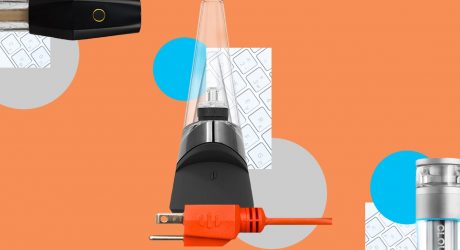Dementia is a major health concern that affects a significant portion of the global population. Millions of people currently live with it, with more and more diagnosed every year. It has become so commonplace that some people accept it as a normal part of aging, even though it isn’t.
But just because you know about dementia doesn’t mean that the symptoms are obvious right away. This article will help you understand dementia, its causes, and common symptoms so that you can better easily spot it in your loved one. After reading, you will have a better understanding of if your loved one needs to see a doctor and if they will need extra care.
What Is Dementia?
Dementia is a term used to describe the various loss of functions within the brain. This includes memory loss, issues with problem-solving, problems with communication, and other declines in cognitive functioning. Though many of these issues are attributed to aging, the difference is that dementia causes problems that interfere with daily life and gets progressively worse as time goes on.
Dementia is not a disease; it is a term that refers to the damage of brain cells and loss of cognitive functioning. How dementia manifests may differ for each person depending on the person in question and the cause of dementia.
If you wish to read more about dementia, you find more information here. Now, let’s move on to some common causes and symptoms of dementia.
Causes Of Dementia
Dementia is essentially caused by damage to the brain cells that interferes with their ability to communicate with each other. However, the type of damage that occurs is dependent on the cause. Most cases of dementia are caused by diseases, such as Alzheimer’s, Parkinson’s, or Huntington’s disease. Other dementia cases are caused by other health conditions such as strokes or head injuries.
Though Alzheimer’s is the most well-known form of dementia (accounting for up to 80% of dementia cases), there are many other diseases and causes that can cause dementia as well. Some of these common causes include:
- Strokes, high blood pressure, or similar conditions
- Parkinson’s disease
- Pick’s disease
- Severe head injuries
- Huntington’s disease
- Leukoencephalopathies
- Creutzfeldt-Jakob disease
- Multiple sclerosis (MS)
- Multiple-system atrophy
- Major infections, including syphilis
8 Signs That Someone You Love Is Living With Dementia
Though most people know what dementia is and can recognize the signs of later stages, it is not always easy to spot dementia early on. This is complicated by the fact that there are many forms of dementia, all with different causes and symptoms.
However, many symptoms remain similar across all types of dementia. Read on to learn about common signs of dementia, including early signs that you may not know about.
1. Memory problems:
Though forgetfulness is normal for most people, someone with dementia will continuously forget appointments, names, or tasks they were supposed to do that day.
2. Language problems:
As dementia develops, the person will struggle with vocabulary and communication. They may forget what they were saying or easily lose track of a conversation. They may also call something by its wrong name.
3. Confusion:
The forgetfulness and memory problems associated with dementia will cause the person to be confused. They may forget who their loved ones are or why they are in a certain room or a particular store. They may also lose track of where they are and not know how to get back home. All of these experiences are disorienting and can cause frequent confusion.
4. Apathy or depression:
Dementia can be a scary condition, and aging can be a sad or lonely time of life. Therefore, it is very normal for a person with dementia to exhibit apathy or symptoms of depression because their mind and body are not working the way they are supposed to.
5. Struggling to perform basic tasks:
The major difference between dementia and typical aging is that the person can no longer perform basic tasks. Getting dressed, balancing a checkbook, or cooking becomes very difficult for a person with dementia.
6. The trouble with spatial skills:
We all have heard the stories of someone with dementia getting lost. In the early stages, a person with dementia will get confused and lose track of where they are. They may go for a walk in their neighborhood but forget how to get home. This only worsens as dementia progresses.
7. Reduced concentration:
A person with dementia will struggle to remain focused on a particular task for very long. Their attention span shorts as dementia progresses and they may become distracted quite easily.
8. Personality or behavioral changes:
A person with dementia may experience rapid mood swings, as well as mood or behavioral disorders, such as depression. Furthermore, they may not act the way they used to and exhibit changes in their personality.
Final Thoughts
Either developing dementia or watching a loved one develop it can be a scary process to experience. If you recognize any of these signs in you or a loved one, then you should have a discussion with a doctor as soon as possible. They may prescribe treatments or strategies that can slow down the dementia process. Though there is no cure for dementia, there are options to slow it down.
It is also important to find proper care so that the person affected is not alone all the time, especially if they are struggling to function with basic, everyday tasks.
Dementia is a frightening condition. But now that you are armed with knowledge, you can spot it easily, explore treatment options, and find ways to slow its progress.
Read Also:































